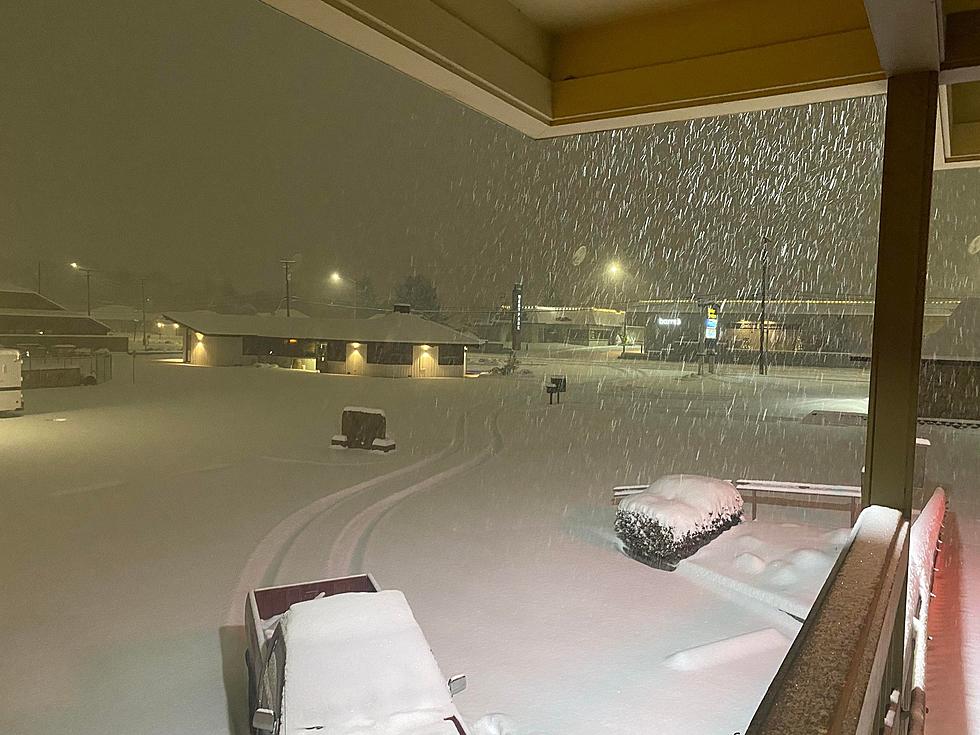
Heavy Yakima Snow Impacts Monday Commute
An unofficial 5 to 7 inches of snow fell overnight in the Yakima area and the snow continues to fall this morning.
City plows are working the business areas first then main streets
Yakima city snowplows have been out taking care of the business areas of the city first and then main streets. But because the snow is so heavy it's taking time to work through the entire city. The snow level must reach 6 inches before city plows are working in area neighborhoods. Until then the snow is heavy and thick in neighborhoods making travel and even walking in the snow a challenge.
Heavy snow and snow slides have closed White and Snoqualmie passes
Both Snoqualmie and White Passes are closed because of heavy blowing snow and poor visibility. There's currently no estimate when the passes will reopen but state officials say they'll reevaluate the roads in the daylight. School and work delays are expected today and this week as the Yakima area hasn't seen this much snow in while making travel a challenge for everyone.
If you don't have to travel stay home and stay safe
Local authorities say if you don't have to go anywhere Today you may want to delay your appointment or other plans. If you must travel authorities say be careful and take your time. You'll need extra time if you haven't shoveled the driveway or taken the snow off your vehicle. Authorities say dress appropriately and wear the proper boots because the snow is deep and if your car is stuck you want to be prepared to walk in the snow.
A winter weather advisory continues until 4:00 p.m. Monday.
TIPS: Here's how you can prepare for power outages
KEEP READING: Get answers to 51 of the most frequently asked weather questions...
LOOK: The most expensive weather and climate disasters in recent decades
More From 92.9 The Bull










